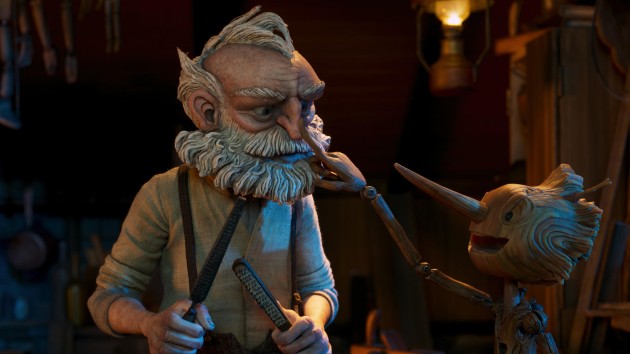Guillermo Del Toro’s ‘Pinocchio’ is a story about fathers, sons…and fascism
Netflix
Guillermo Del Toro‘s Pinocchio is not the family friendly animated film you grew up on. His stop-motion take, out now on Netflix, explores a lot of adult themes in unique ways, including the relationship between fathers and sons and fascism.
He thinks it makes perfect sense, telling ABC Audio, “I think we understood from the beginning that there was a tale told about paternity and different forms of father and son stories. It was religious, partially because of the relationship of Pinocchio to an image of Jesus, and the story of Jesus and his father, the story of Geppetto and Pinocchio, different fathers in the film with different sons. And the most pernicious, caustic form of paternalism, if you would, is the totalitarianism of fascism.”
Del Toro sees a lot of parallels between the WWII Italian fascism of the film, and today.
“One of the things that we wanted to say is disobedience is a virtue in times like this. And for disobedience to have risks, then you have to place it in a historical time where it has consequences,” he explains. “You know, Pinocchio is tempted by the sort of pageantry of show business and by the fear of totalitarian thought.”
The Oscar-winning director says there are a lot of parallels to his own life, particularly, “My relationship with my father and my relationship as a father, both, you know? And the things where you fail or were failed to.”
He goes on to say that “there is no movie worth making where something doesn’t hurt.”
“It doesn’t matter if is this film or Nightmare Alley or Pan’s Labyrinth or Shape of Water, you have to talk about things that are somewhat painful for you or somewhat urgent.”
Copyright © 2022, ABC Audio. All rights reserved.

